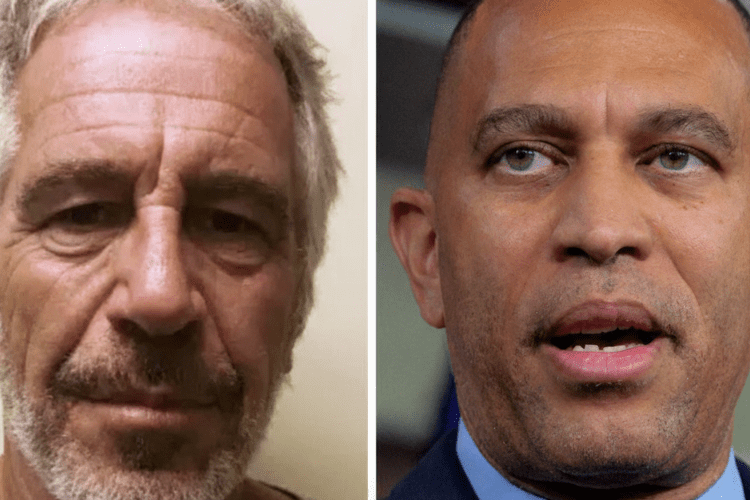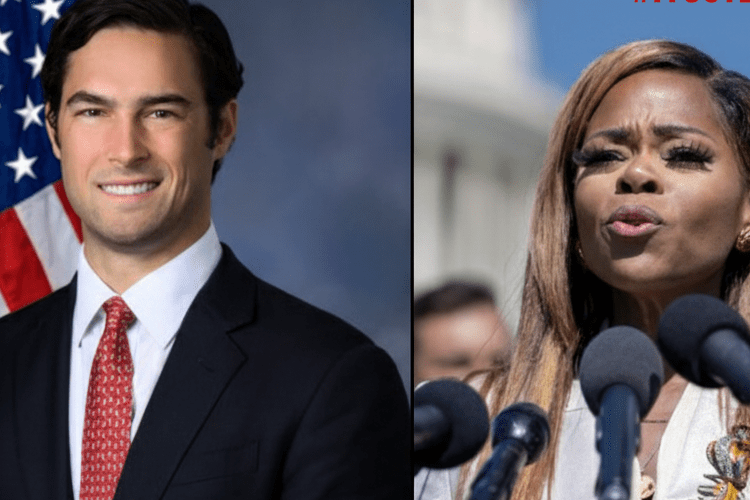The Epstein Email That Could Haunt Hakeem Jeffries’ RiseBrooklyn’s Barack or Buried Secret? How a 2013 Epstein Fundraiser Pitch Ignited a GOP Blaze Under House Dem Leader Hakeem Jeffries
In the marbled echo chamber of the U.S. House of Representatives, where the air hangs heavy with the weight of unspoken alliances and the faint rustle of briefing papers, a single accusation sliced through the partisan din on November 18, 2025, like a blade honed for maximum sting. House Oversight Committee Chairman James Comer, the Kentucky Republican with a drawl as steady as a river current and a gaze sharpened by years of unearthing Washington’s underbelly, rose to the floor not with fiery rhetoric alone, but armed with a digital relic from a dozen years past—a 2013 email that painted a picture of Democratic ambition brushing perilously close to one of the darkest figures in modern infamy. “Democrat fundraisers invited Epstein to attend an event, or meet privately with Hakeem Jeffries as part of their 2013 effort to win a majority,” Comer declared, his voice carrying the quiet thunder of revelation. “So, Hakeem Jeffries’ campaign solicited money from Jeffrey Epstein. That’s what we found in the last document batch.” The words landed amid a chamber already crackling from the broader Epstein document dump, a trove of over 20,000 pages released by GOP lawmakers the week prior, each page a thread in the unraveling tapestry of power’s hidden seams. For survivors of Epstein’s crimes, watching from the shadows of advocacy groups and quiet living rooms, it was a gut-wrenching reminder that justice’s slow grind often unearths pain anew; for political watchers, it was the spark that threatened to scorch the carefully curated image of Hakeem Jeffries, the poised Brooklyn Democrat who had climbed from civil rights lawyer to House Minority Leader on a platform of unyielding progressivism.
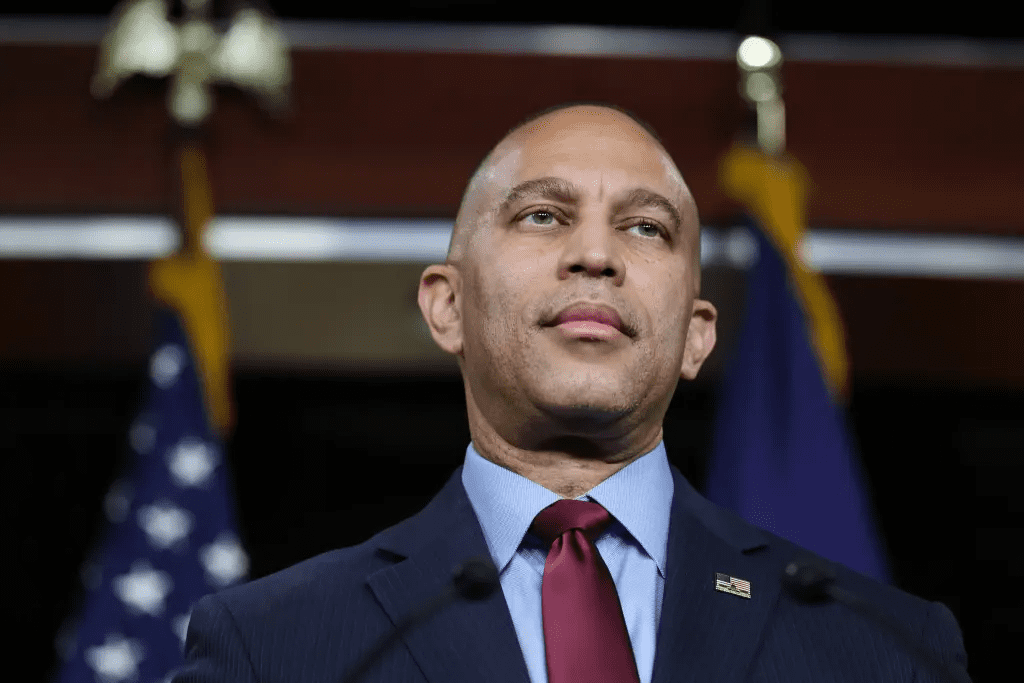
To understand the tremor this email sent through the halls of power, one must rewind to the spring of 2013, a time when the nation was still basking in the afterglow of Barack Obama’s reelection and the Affordable Care Act’s hard-fought rollout. Hakeem Jeffries, then a freshman congressman fresh off his 2012 victory in New York’s 8th District, embodied the fresh-faced optimism of a new generation. At 42, with a Harvard Law pedigree and a baritone voice that evoked the measured cadence of the man he was often dubbed “Brooklyn’s Barack,” Jeffries was a rising star in the Democratic firmament—a civil liberties advocate who had battled predatory lending as a state assemblyman and now turned his sights to Capitol Hill’s bigger battles. His district, a mosaic of Crown Heights brownstones and Bedford-Stuyvesant stoops, pulsed with the dreams of immigrant families and working-class strivers, the very souls Jeffries vowed to champion against the tides of inequality. It was in this heady atmosphere of possibility that Dynamic SRG, a New York City-based political consulting firm enlisted by Jeffries’ campaign, fired off an email on May 7, 2013, with the innocuous subject line: “Rising Star.”
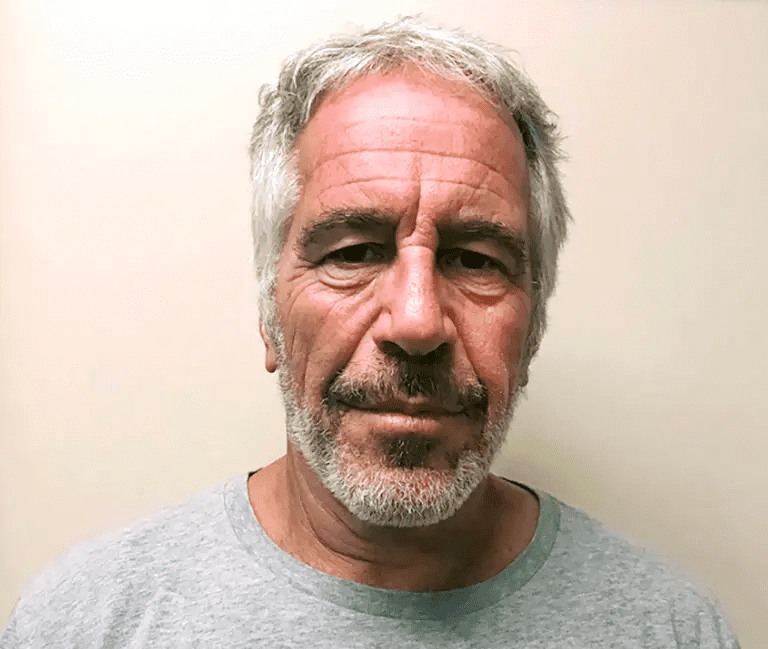
The message, penned by Lisa Rossi, a partner at the firm, opened with effusive praise: “We are thrilled to announce that we are working with Congressman Hakeem Jeffries, one of the rising stars in the New York Congressional delegation. Sometimes referred to as ‘Brooklyn’s Barack’, he is a staunch supporter of President Obama and a progressive voice for the people of New York City.” Attached were a video montage and an article highlighting Jeffries’ early legislative wins—bills on criminal justice reform, economic equity—that painted him as the embodiment of Obama’s urban cool fused with unapologetic advocacy. But the pitch quickly pivoted to the practical, the currency of campaigns: “Hakeem is committed to electing a Democratic majority in 2014 and is encouraging his friends to participate in the DCCC/DSCC fundraising dinner with President Obama this coming Monday night. Shoot us an email or give us a call at [the firm’s phone number] if you would like to get involved with the dinner, or would like to get an opportunity to get to know Hakeem better.” The recipient? None other than Jeffrey Epstein, the financier whose Palm Beach mansion and private island masked a web of exploitation that would later horrify the world. The email, forwarded to Epstein by his longtime executive assistant Lesley Groff, landed in his inbox five years after his infamous 2008 guilty plea in Florida to charges of solicitation of prostitution and solicitation from a minor—a sweetheart deal that spared him federal reckoning but branded him a predator in the eyes of those who knew better.
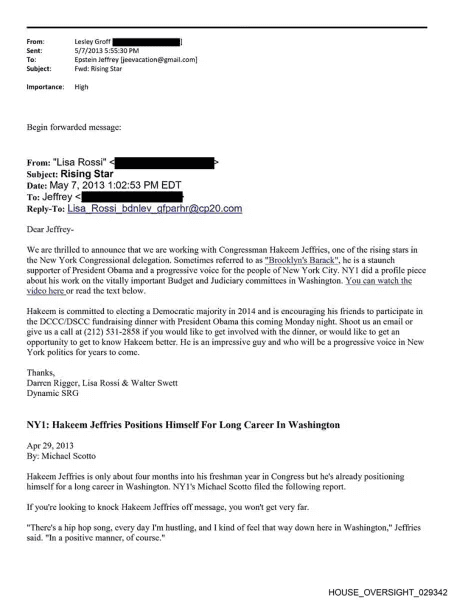
Epstein, with his tousled hair and enigmatic smile, had long danced on the fringes of elite Democratic circles, his checkbook a key to salons where power and philanthropy blurred. In the 1990s and early 2000s, he had funneled tens of thousands to figures like Bill Clinton’s campaigns and the Democratic Senatorial Campaign Committee, his largesse buying not just influence but the illusion of intellectual kinship—dinners with Nobel laureates, flights on his Lolita Express alongside stars of stage and state. By 2013, though, the stench of scandal clung to him like humidity in a summer storm; his 2008 plea had splashed across tabloids, yet here was Dynamic SRG, casting a line into those murky waters on behalf of a congressman who, by all accounts, was building a career on protecting the vulnerable. Federal Election Commission records, meticulously combed in the wake of Comer’s charges, reveal no trace of Epstein’s money flowing to Jeffries, the DCCC, or the DSCC in 2013 or the years immediately following—no checks cashed, no wires transferred, no shadowy bundles. It’s unclear if Epstein ever replied, attended the Obama-hosted dinner, or crossed paths with Jeffries in some dimly lit Manhattan lounge. What lingers, though, is the what-if—the chilling proximity of ambition to atrocity, a footnote in a campaign ledger that now reads like a prologue to regret.
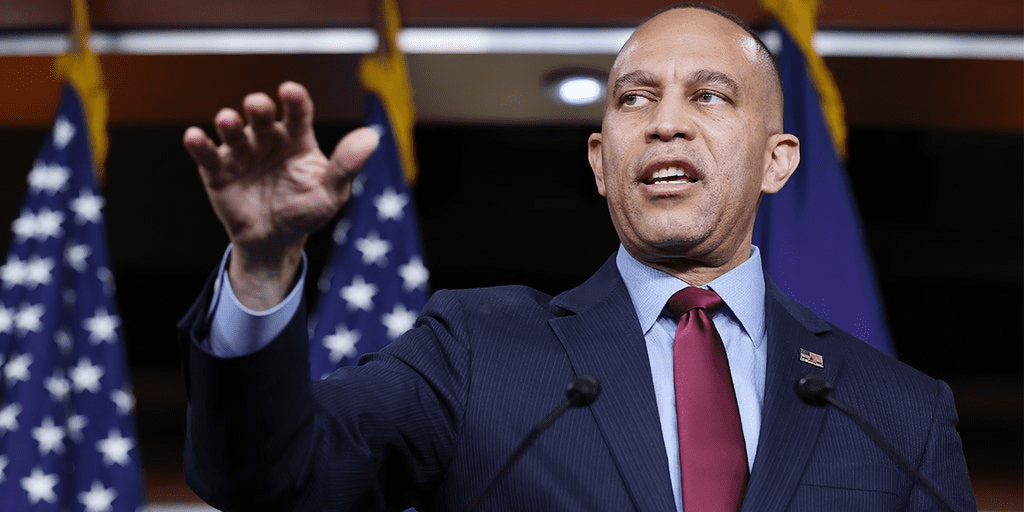
Fast-forward to that November afternoon in the House chamber, and Comer’s words weren’t mere salvo; they were a calculated broadside in the endless trench warfare of Capitol politics. As chairman of the Oversight Committee, the soft-spoken Kentuckian— a former bank regulator turned bulldog investigator—had already steered probes into Biden family finances and COVID origins, earning plaudits from conservatives for his dogged pursuit of transparency. This Epstein inquiry, launched amid the 2024 election’s fever, had ballooned into a bipartisan quest for accountability, culminating in a House vote to compel the Justice Department to release its full files within 30 days—a measure President Trump pledged to sign with his trademark flourish. But Comer’s spotlight on Jeffries felt personal, a mirror held up to the Democratic leader’s sanctimonious critiques of GOP entanglements. Just days earlier, Democrats had waved Epstein’s old flight logs—naming Trump among passengers—as a cudgel against the incoming administration. Comer, undeterred, flipped the script: If the past was prologue, why had Jeffries’ team courted the devil himself? The accusation rippled outward, igniting cable news panels and X threads, where MAGA voices crowed of hypocrisy and progressive allies scrambled for cover. For Jeffries, now 55 and the first Black leader of House Democrats, it was a bolt from a clear sky, threatening the narrative he had so meticulously crafted: the steady hand guiding his party through electoral defeats, the bridge-builder eyeing a speakership in 2026 or beyond.
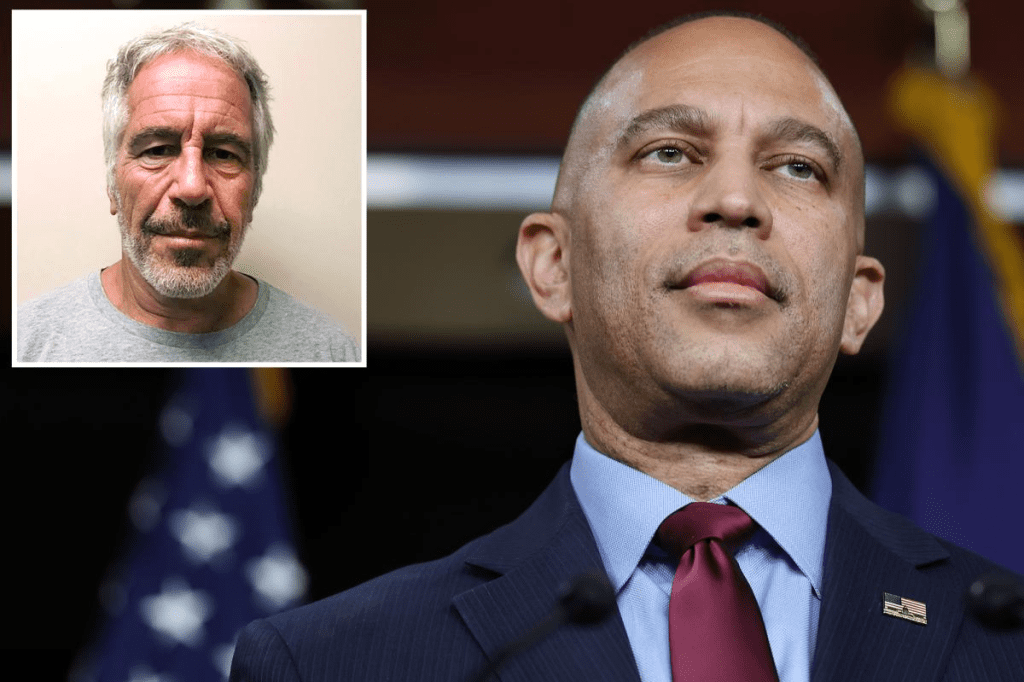
Jeffries’ response came swiftly, laced with the calm authority that had won him allies from labor unions to Wall Street reformers. Speaking to CNN later that evening, his expression a mask of measured indignation, he dismissed the email as ancient history he scarcely recalled. “I’ve never had a conversation with him, never met him, know nothing about him other than the extreme things that he’s been convicted of doing,” Jeffries said, his voice steady as he leaned into the camera’s glare. “And that’s why, you know, I’m just strongly supportive of the effort, backing the survivors to make sure that everything can come out, whatever is in those Department of Justice files.” It was a deft pivot, transforming potential vulnerability into virtue—alignment with victims over evasion, transparency over deflection. His office, reached by Newsweek and others, echoed the sentiment: The outreach was the work of a third-party consultant, unsolicited by Jeffries himself, and bore no fruit in donations or dealings. Dynamic SRG, the firm behind the missive, went silent, neither confirming nor denying the context, leaving Rossi’s words to hang in the ether like a ghost from a bygone fundraiser. Yet for all its clarity, Jeffries’ words carried an undercurrent of sorrow—the knowledge that even tangential ties to Epstein’s orbit could smear the innocent, a stain that no presser could fully bleach.
This episode, unfolding against the backdrop of Epstein’s enduring shadow, stirs a deeper unease, one that tugs at the American heart’s frayed edges. Epstein’s 2019 suicide in a federal cell—ruled official but whispered as convenient—left a void filled by questions: Who knew? Who benefited? Who looked away? His victims, women and girls whose stories emerged in wrenching detail during Ghislaine Maxwell’s 2021 trial, have fought for years to pierce the veil of elite impunity. Groups like the Epstein Victims’ Compensation Program, which disbursed over $120 million by 2021, continue their quiet crusade, amplifying voices that power once silenced. In Jeffries, they found an unlikely but vocal champion; as a co-sponsor of bills to extend statutes of limitations on child sex abuse, he had positioned himself as their ally, hosting roundtables in Brooklyn basements where survivors shared scars over coffee and resolve. To see his name now entangled, however loosely, in Epstein’s ledger evokes a poignant irony—a leader forged in the fire of advocacy, grazed by the very flames he sought to extinguish.
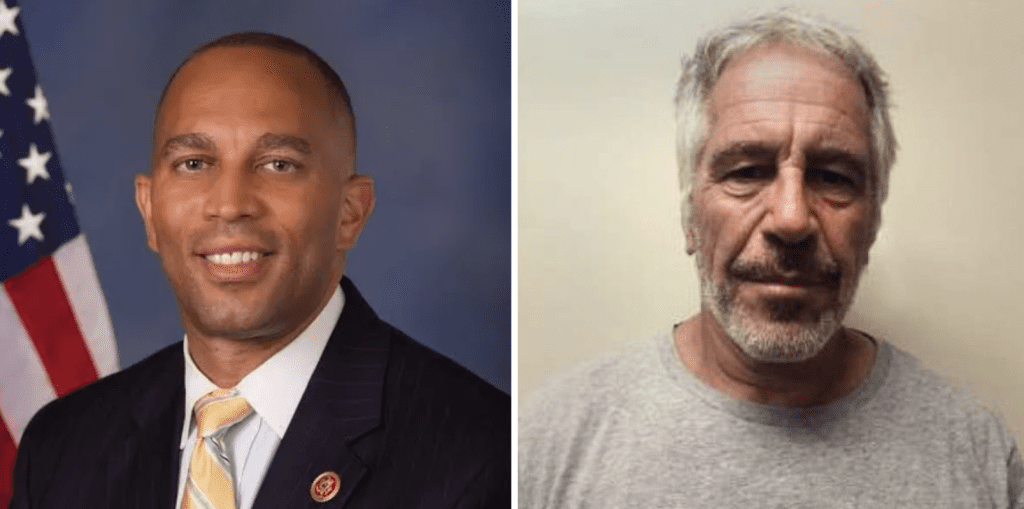
Comer’s probe, for its part, walks a tightrope between legitimate scrutiny and partisan theater, a balance Republicans have struck with varying grace in the Trump era. The Kentuckian’s committee has unearthed gems before—Hunter Biden’s laptop odyssey, Fauci’s emails—but critics, including Democrats on the panel, decry this as deflection from Trump’s own Epstein adjacency, those 1990s Mar-a-Lago soirees where the two men traded quips amid crystal glasses. Yet the facts, as they stand, tilt toward exoneration for Jeffries: no meetings, no money, no malice evident. Federal records confirm the void—no Epstein dollars tainted Jeffries’ coffers, unlike the financier’s earlier gifts to Clinton-era causes. What remains is the emotional toll, the way such revelations erode trust in institutions already battered by division. For Jeffries’ constituents—nurses in Flatbush, teachers in East New York—it underscores the fragility of leadership, how one errant email from a hungry consultant can summon specters that haunt for years. In private calls to allies that week, Jeffries reportedly vented frustration not at the allegation’s bite, but at its timing: With Democrats licking wounds from the 2024 midterms and eyeing a rebound, this felt like salt in an open gash.
As November’s chill settled over Washington, the story simmered, fodder for Sunday shows and late-night monologues. Comer pressed on, vowing deeper dives into Epstein’s donor diaries, while Jeffries doubled down on survivor support, announcing a caucus push for fuller DOJ disclosures. In the quiet aftermath, one couldn’t shake the human ache at its core—the survivors’ renewed vigilance, the politicians’ dance with demons past, the relentless quest for a reckoning that honors the broken without breaking the innocent further. For Hakeem Jeffries, the man who rose on promises of light in shadowed corners, this chapter tests not just his resilience, but the soul of a democracy forever scarred by secrets unearthed too late. In the end, as the Capitol dome gleamed under frost-kissed skies, it whispered a timeless truth: Power’s invitations come cheap, but their echoes? They cost everything.
